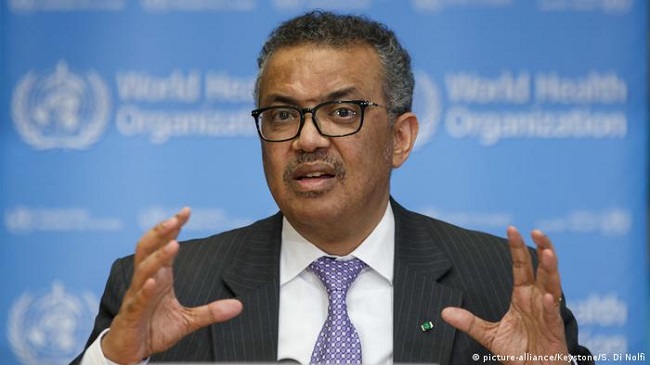World Health Organisation (WHO) says Nigeria, Egypt, Kenya, Senegal, South Africa and Tunisia will be the first countries on the African continent to receive the technology needed to produce game-changing mRNA vaccines to fight COVID-19

The announcement was made at a ceremony on Friday, February 18, 2022, hosted by the WHO, the European Council, France and South Africa with their respective Presidents in attendance.
“No other event like the COVID-19 pandemic has shown that reliance on a few companies to supply global public goods is limiting, and dangerous,” WHO Director-General, Tedros Ghebreyesus, said.
The revolutionary mRNA technology teaches the body’s own cells how to make a protein that triggers an immune response, without using any viral material. In the case of COVID-19, it produces a harmless piece of the spike protein, alerting the body to defend itself from the virus.
The global mRNA technology transfer hub was established in South Africa in 2021 to support low and middle-income countries in manufacturing their own mRNA vaccines – with the required operating procedures and know-how to meet international standards.
Primarily set up to address the COVID-19 emergency, the hub has the potential to expand its capacity for other manufacturing as well, putting countries in the driver’s seat when it comes to the kinds of vaccines needed to address their health priorities.
Depending on the country’s infrastructure, workforce and regulatory capacity, WHO and partners will work with them to develop a roadmap, organise training and provide support to begin producing the highly effective vaccines at home, as soon as possible.
“This is an initiative that will allow us to make our own vaccines and that…means mutual respect…investment in our economies…and, in many ways, giving back to the continent,” South Africa President, Cyril Ramaphosa, said.
To ensure that every country builds the capacity to produce their own vaccines and health technologies, WHO has been establishing a biomanufacturing workforce training hub for States interested in production and scientific and clinical research, which will be announced in the coming weeks.
Moreover, WHO’s current activities in support of low and middle-income countries will expand through a global tool that assesses countries’ ability to ensure the quality, safety and efficacy of health products.
It will also provide training to build agile and fit-for-purpose regulatory systems.
“In the mid to long-term, the best way to address health emergencies and reach universal health coverage is to significantly increase the capacity of all regions to manufacture the health products they need, with equitable access as their primary endpoint,” WHO chief said.
The WHO mRNA technology transfer hub is part of a larger effort to empower low and middle-income countries to produce their own vaccines, medicines and diagnostics to achieve universal health coverage.
The initial effort is centred on mRNA technologies and biologicals, which are important for vaccine manufacturing and can also be used for other products, such as insulin to treat diabetes, cancer medicines and, potentially, vaccines for other priority diseases such as malaria, tuberculosis and HIV.
The ultimate goal is to extend capacity building for national and regional production to all health technologies.
French President, Emmanuel Macron, pointed out that in an interconnected world, stronger new collaborations between countries, development partners and others are important “to empower regions and countries to fend for themselves, during crises, and in peace time”.
“Improved public health benefits, supporting African health sovereignty and economic development are the principal goals of strengthening local production in Africa,” he added.
